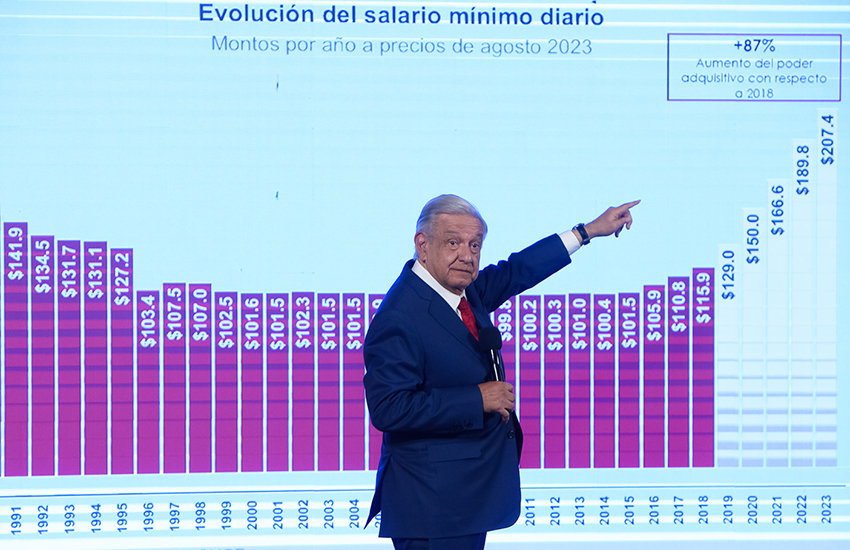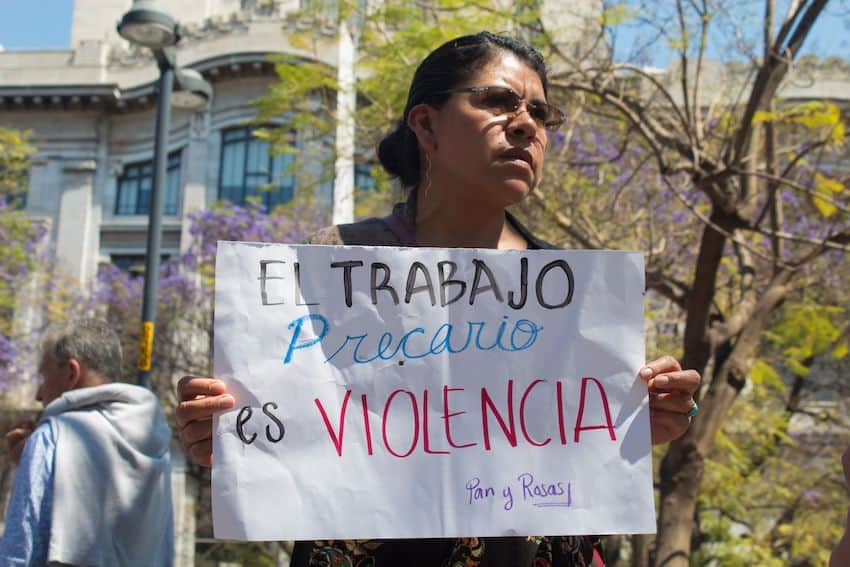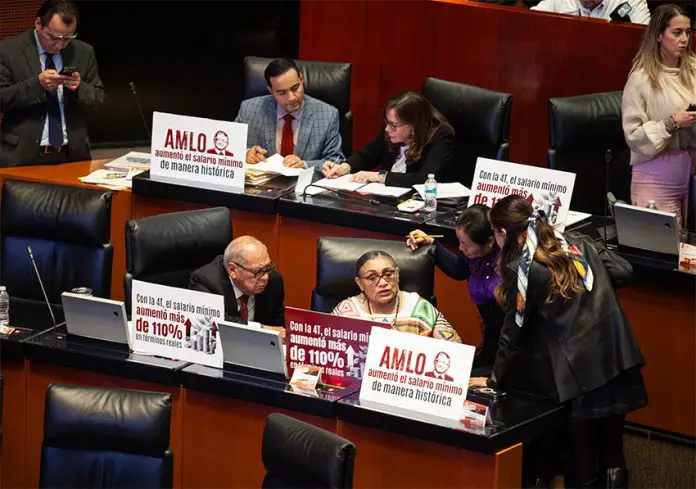The Senate on Wednesday approved a constitutional reform bill aimed at ensuring that annual increases to Mexico’s minimum wage are higher than the prevailing inflation rate.
All 124 senators present in the Senate voted in favor of passing the bill that was submitted to Congress in February by former president Andrés Manuel López Obrador.
The Chamber of Deputies approved the proposal last month. To be signed into law, the bill must be ratified by at least 17 of Mexico’s 32 state legislatures, a requirement that will easily be met.
The bill also establishes that the salaries earned by teachers, police officers, members of the National Guard and armed forces, as well as doctors and nurses cannot be below the average wage of workers registered with the Mexican Social Security Institute.
That will ensure that the aforementioned workers earn at least 16,777 pesos (US $862) per month. Some workers, including teachers and police officers, will receive significant raises after the bill is promulgated.
The current minimum wage in most of the country is 248.93 pesos (US $12.80) per day or 7,467 pesos (US $383) per month. It almost tripled during López Obrador’s recently-concluded six-year term.

President Claudia Sheinbaum said last week that she would like to see annual increases of around 12% during her period in government. Increases are set by the National Minimum Wage Commission after consultation with employers and unions.
Morena party Senator Óscar Cantón Zetina said Wednesday that it was a “historic” day for the nation’s workers because their wages “will no longer fall victim to inflation.”
Workers’ wages previously lost their purchasing power because they were affected by “pernicious inflation,” he said.
According to the national statistics agency INEGI, around 40% of Mexico’s workforce earns the minimum wage or less. Many Mexicans work in the country’s vast informal sector, which doesn’t guarantee the minimum or provide any benefits to workers.
During López Obrador’s term, minimum wage hikes easily outpaced increases in consumer prices, even as inflation hit a two-decade high in 2022.
The minimum increased 20% at the start of this year, more than four times higher than the annual headline inflation rate in January. INEGI reported Wednesday that the headline rate in September was 4.58%.
While opposition senators supported the bill, some said that additional reforms are required to support workers who aren’t even guaranteed the minimum, namely those who work in the informal sector.

Institutional Revolutionary Party Senator Claudia Anaya noted that informal sector workers don’t have access to employment benefits either, and declared that the Congress should do something to help them as well.
Senators and deputies who were elected on June 2 have been busy since assuming their positions on Sept. 1, approving a number of constitutional bills including a judicial reform and a reform that placed the National Guard (GN) under the control of the army.
Morena and its allies have a supermajority in the Chamber of Deputies and a virtual supermajority in the Senate, putting them in a strong position to approve a raft of constitutional reform proposals López Obrador sent to Congress in early 2024.
The ex-president promulgated the judicial reform and the GN reform before he left office last week.
The minimum wage bill looks set to be the first constitutional reform to be signed into law by Sheinbaum, who was sworn in as Mexico’s first female president on Oct. 1.
With reports from El Universal, Proceso and Aristegui Noticias
